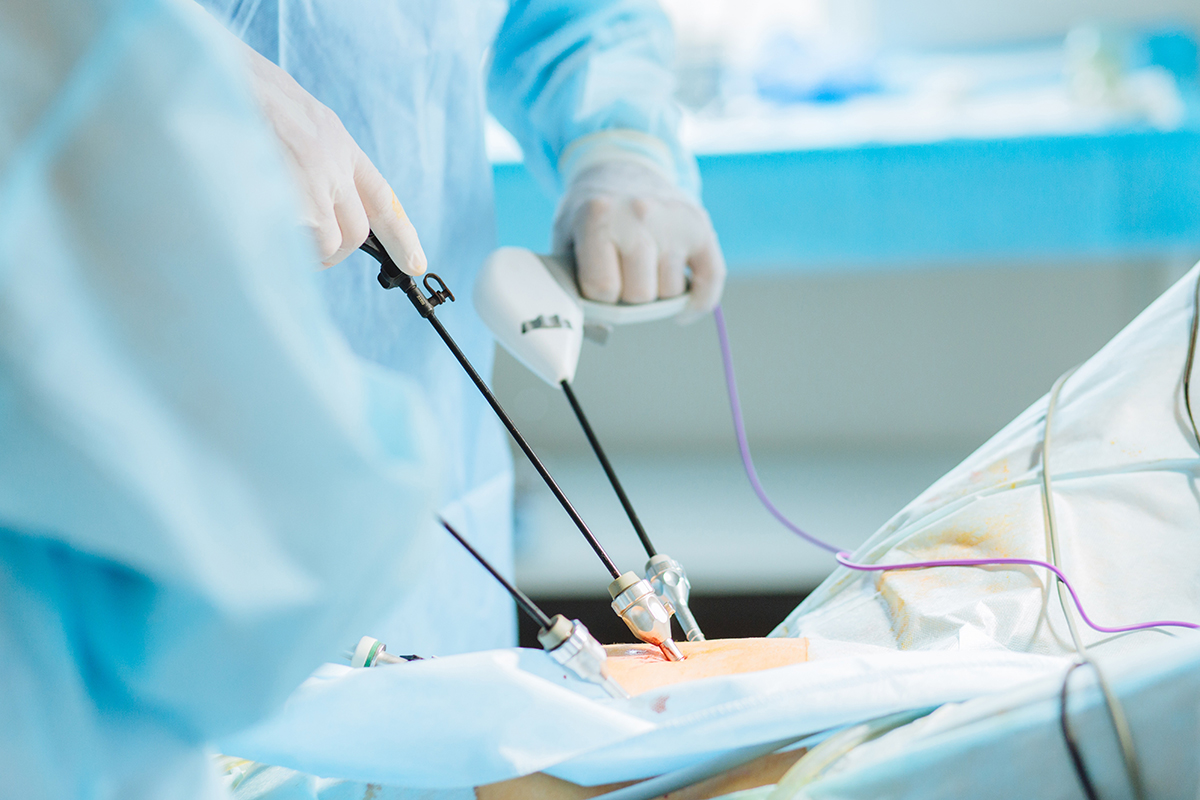PIPAC (Pressurized Intraperitoneal Aerosol Chemotherapy) is a fundamental method of delivering chemotherapy.
PIPAC - Innovative Direct Delivery of Chemotherapy, suitable for peritoneal metastases.
Administers highly concentrated aerosol treatment directly into the abdominal cavity.
When PIPAC is used in combination with systemic chemotherapy, it allows peritoneal (abdominal) metastases to be controlled with fewer adverse outcomes. This lead therapy has proven to be particularly effective in patients with cancer who have not reached end-stage disease.
How does PIPAC chemotherapy work?
PIPAC is a minimally invasive laparoscopic surgery performed under general anesthesia. The revolutionary technology uses a video camera and a specialized device called Capnopen. Capnopen is a nebulization tool created as a fuel injection technology in the automotive world. It squeezes chemotherapy agents, turning them into an aerosol.
Prior to PIPAC administration, abdominal cavity biopsies are performed and the peritoneal cancer index (PCI) is assessed by video. When used together these assessment procedures provide both an objective and subjective analysis of the patient's response to chemotherapy.
Capnopen is connected to an injector and inserted into the abdomen via a trocar (surgical access tool). The therapeutic aerosol chemotherapy drug is then given; specific cytotoxic agents are determined based on the underlying disease. Injection of the drug is performed for 30 minutes before the aerosol is removed. From start to finish, aerosol chemotherapy (PIPAC) takes about an hour.
Patients generally remain hospitalized overnight after PIPAC and the procedure is well tolerated. Recurrences are usually done every six weeks and on average, aerosol chemotherapy is administered to each patient three times before their disease is re-evaluated.
There are several advantages in administering the chemotherapy drug as a spray, namely:
- A smaller dose is needed because the combination of pressurized delivery and small aerosol particles penetrates the tumor tissue more deeply.
- The aerosol dissolves more evenly in the abdominal cavity, thus encapsulating the tumor and preventing it from spreading.
What conditions can be treated with aerosol chemotherapy (PIPAC)?
PIPAC may be an appropriate treatment for patients with the following cancers:
- Abdominal metastases from malignant tumours in the stomach, colon, pancreas, liver and appendix
- Mesothelioma
- Women with ovarian cancer and metastases to the abdominal cavity
PIPAC's primary goal is to extend survival and improve quality of life for patients with these conditions.
Which patient is suitable for PIPAC?
PIPAC is indicated for cancer patients with peritoneal metastases who have the following conditions:
- Severe side effects caused by systemic chemotherapy
- No longer responding to systemic cancer treatment
- Large amount of persistent ascites (accumulation of protein-containing fluid in the abdomen)
- Unacceptable for CRS (cytoreductive surgery) due to high disease burden
- Unacceptable for HIPEC (hyperthermic intraperitoneal chemotherapy) due to high disease burden
PIPAC cannot be administered to patients who:
- Have undergone numerous abdominal surgeries in the past
- Have metastases outside the abdominal area
- Have poor general condition
- Have obstruction of the bile or small intestine
What are the possible side effects of PIPAC chemotherapy?
Quality of life (QoL) for patients with peritoneal metastases who received PIPAC treatment has been studied, and the most striking result is that QoL stabilized. In general, gastrointestinal symptoms did not worsen and any pain experienced was transient. In general, patients do not report the common side effects of systemic chemotherapy (such as severe nausea, vomiting, diarrhea, mucositis, hair loss).
Possible side effects may include:
- Mild abdominal pain
- Mild feelings of discomfort
- Mild nausea
For more information, we at Medical Karaj are at your service.
Call us on the following numbers "Medical Karaj": 0879 977 401 or 0879 977 402.
Also keep an eye on our constantly updated Facebook content.



